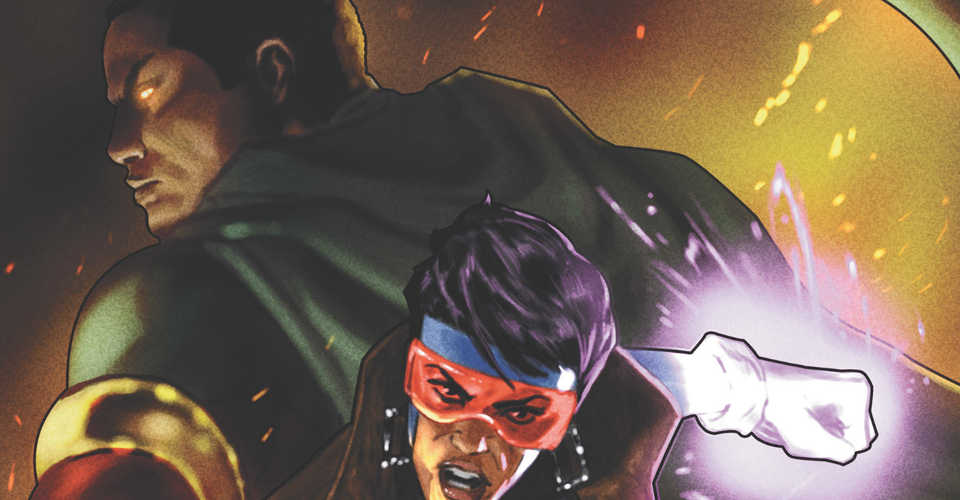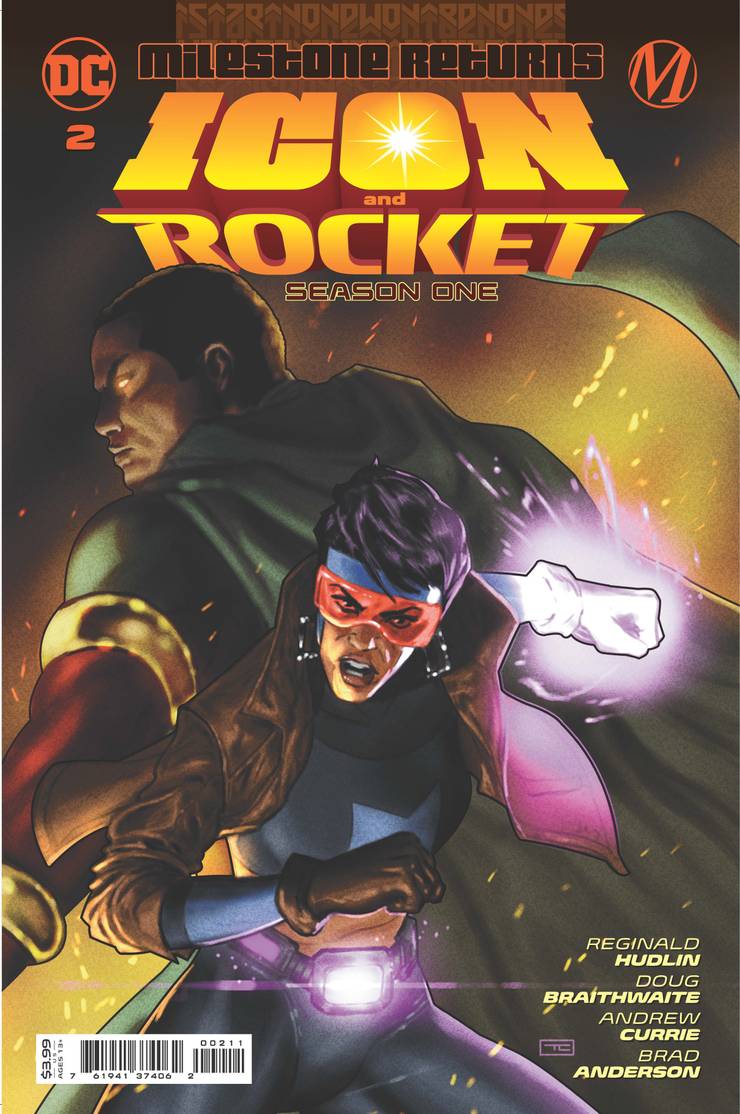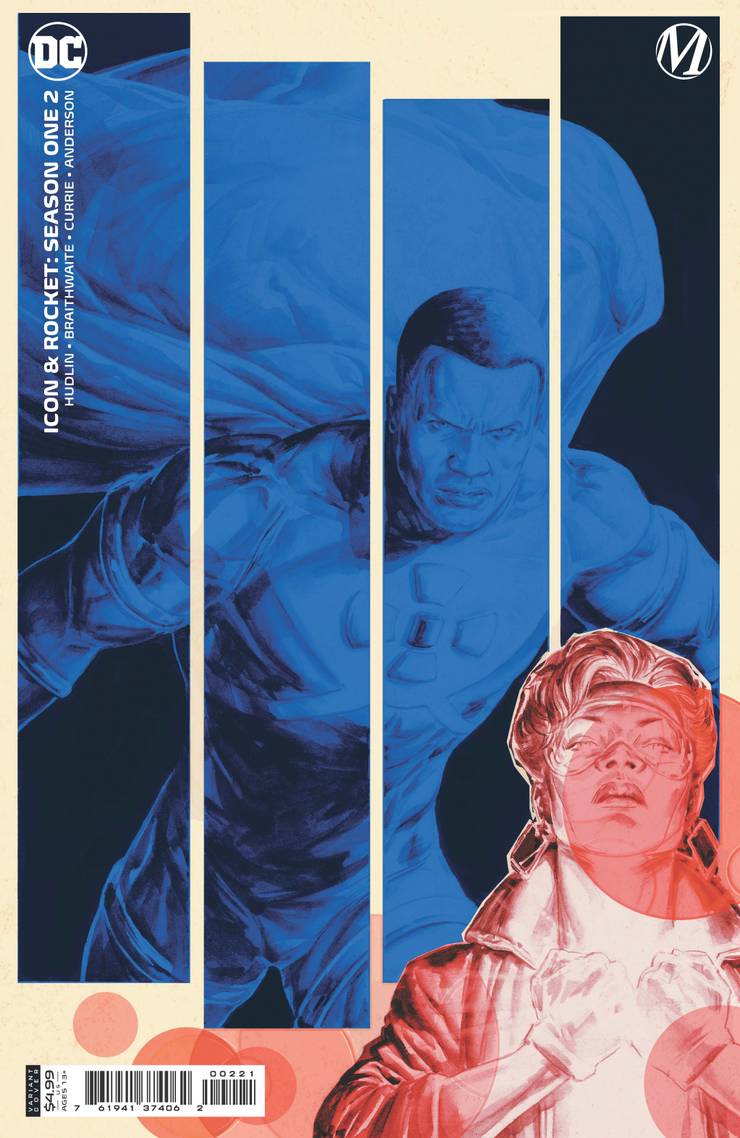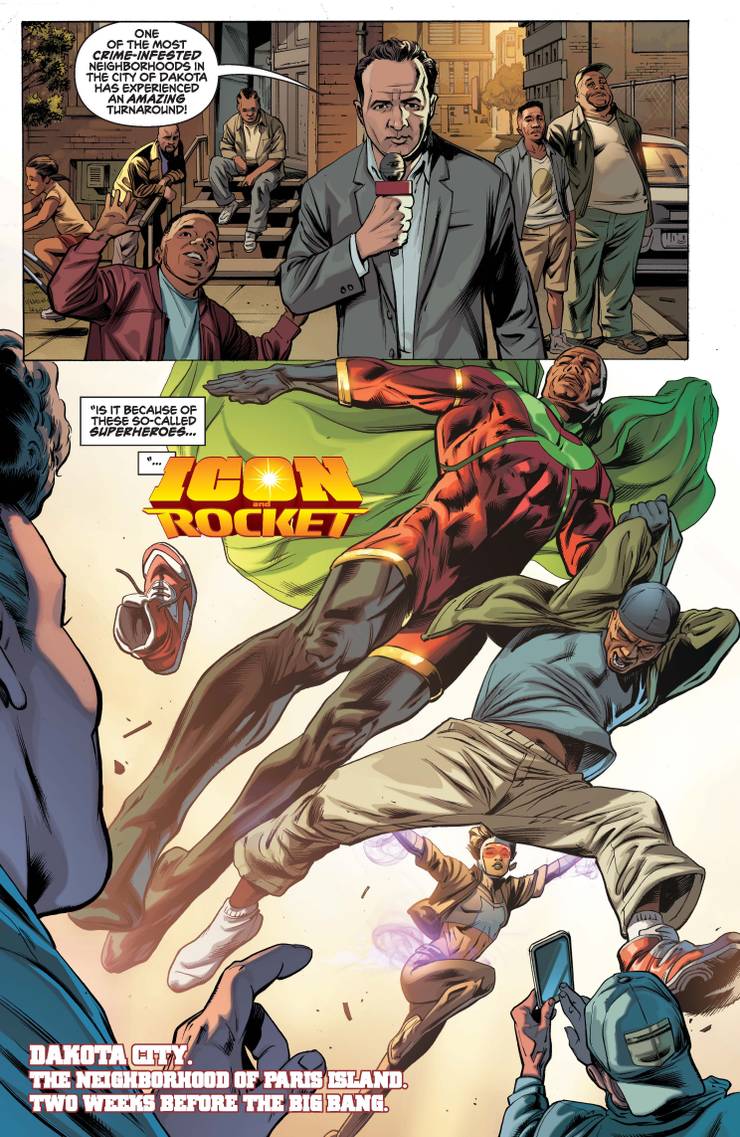Icon & Rocket Season 1: Hudlin & Chills Discuss [SPOILER]’s Death & Why Icon Is NOT Superman
In an interview with CBR, Milestone Comics’ Reginald Hudlin and Leon Chills discussed Icon and Rocket Season One #2
.BY D. R. BICKHAMPUBLISHED AUG 24, 2021

Warning: The following article contains spoilers from Icon and Rocket Season One #2, on sale Aug. 24 from DC Comics.
The DC Comics imprint Milestone Comics was initially formed in the 90s to provide representation for marginalized and misrepresented characters and creators in the world of comics. Founded by a team of African-American creators that included Denys Cowan, and the late Dwayne McDuffie, Milestone was responsible for the creation of fan-favorite hero Static — who later starred in the Static Shock animated series and gained a place on the Teen Titans — as well as Hardware and Icon. Recently, all three of these Milestone heroes have been rebooted in new series that takes place outside of the mainstream DC universe.
Reginald Hudlin and Leon Chills, two of the creators behind the new Icon and Rocket Season One series, sat down with CBR for an interview to discuss the series’ second issue. In Icon and Rocket Season One #2, the African-American hero Icon, who has been widely regarded as the Superman of the Milestone universe, has a violent confrontation with slave owners during the Civil War era and kills Jefferson Davis, the historical leader of the Confederacy.

CBR: Was there any kind of particular statement you were trying to make with Icon killing Jefferson Davis?
Reginald Hudlin: I grew up reading comic books where superheroes would stop bank robbers. Banks, which are FDIC protected, right? What were they doing? They were just protecting the property of rich people. They weren’t really solving problems. The point of Icon and Rocket is that they solve problems. And we see what happens when you solve real problems. What are the consequences of that? Who would object to that?
We ask the question of what would happen if superheroes started solving real problems, and in the process, Icon is showing Rocket how the world really works. Whether it’s stopping drugs in Rocket’s neighborhood or stopping slavery, it’s the same thing. People just want to be left alone to live their lives in peace, but there’s always someone who refuses to allow them that peace and insists on exploiting them. And when you stand up against the exploitation of other people, huge forces are going to be marshaled against you. That’s the Black experience, not just in America but around the world.
Leon Chills: Has there ever been a Black superhero who had powers but was a slave? I think once he realizes and comes into his powers he’s going to do something about what’s going on around him.
Hudlin: If you look at the book, Icon says, “Me and mine are safe. Anybody who makes it here is safe.” He was willing to try coexistence. But the slave owners refused to accept it because they couldn’t bear the thought of free Black people. So he said, “Okay, I tried to accommodate you, which was more than you deserved. But you can’t bear the thought of Black freedom. Fine. Now I’m going to free everybody.”

CBR: Icon has widely been regarded as Milestone’s Superman. How is this character different from the Man of Steel?
Chills: I feel like a lot of the threats that Superman handles are on a macro level — like someone’s trying to destroy the planet or take over the world. Because Icon has lived in the skin of a Black man, what he goes up against is a lot more personal because he’s been oppressed. Like Reggie said, they’re actually going after societal ills. You don’t really see Superman or most other heroes doing this, and that’s a huge difference.
Hudlin: You’re exactly right. These guys are both aliens, and their main difference is due to how they grew up. One grew up in Smallville in the 40s or 50s. The other man grows up on a plantation in Georgia in the 1850s. They have very different life experiences and life hacks. They’re both guys with a strong moral compass. They’re both genuinely great people. So it’s not that we’re knocking Superman, but he’s working through the cultural matrix that shaped him. And so is Icon, but his cultural matrix is different. It doesn’t mean that one is more moral than the other. It’s just that they see the world and how to make it better in different ways.
This is not Superman. Icon is his own character. And one of the things that is important to me and the book is that we tell stories that you’ll never see in an issue of Superman. He not Superman painted brown. He’s a unique character with his own set of choices and storylines that reflect who he is. The point of Milestone isn’t to tell typical comic book stories with a Black character. We tell our stories from our own unique perspectives.

CBR: What can you tell us about the villain we see in this issue, Benedict Lord?
Hudlin: He’s a badass. You have to have villains who can beat the hero, and he’s a terrifying challenge for Icon and Rocket. He’s taken out Icon before and he can do it again.
Chills: He has a lot of skills at his disposal that I don’t want to spoil. He has an approach that I don’t think a lot of villains would take. It’s sometimes better to use stealth than brute force.
CBR: Is there a Season Two planned for Icon and Rocket?
Hudlin: We have so many ideas. I really try not to get too far ahead of ourselves. We’re wrapping up the first arc now, but we’re always making plans to top ourselves.
Chills: We’re firing on all cylinders for Season One. We send the script and they get excited, we see the art and we get excited. All that energy goes into the next issue. I fully expect that to continue going into Season Two. There’s just so much more for you to see.
